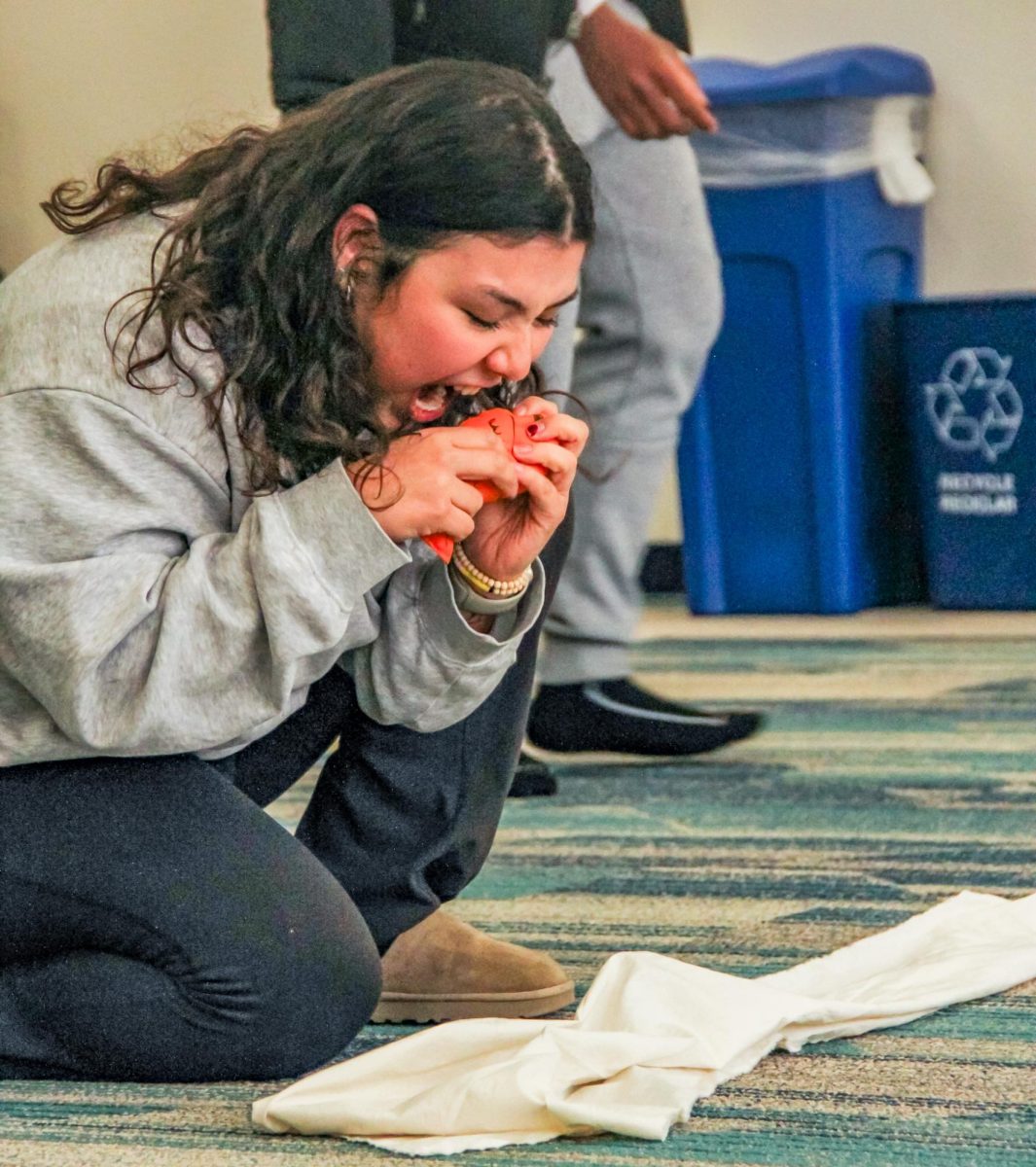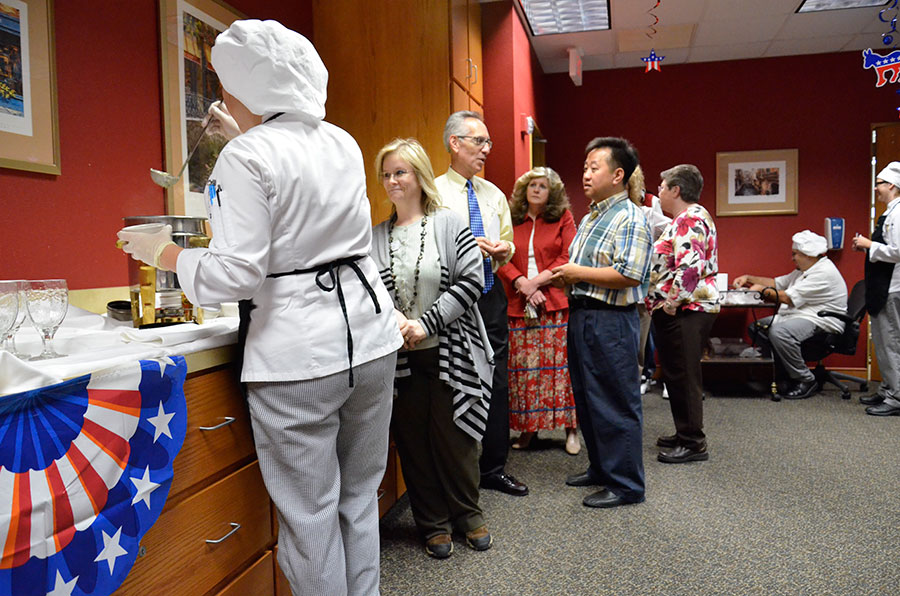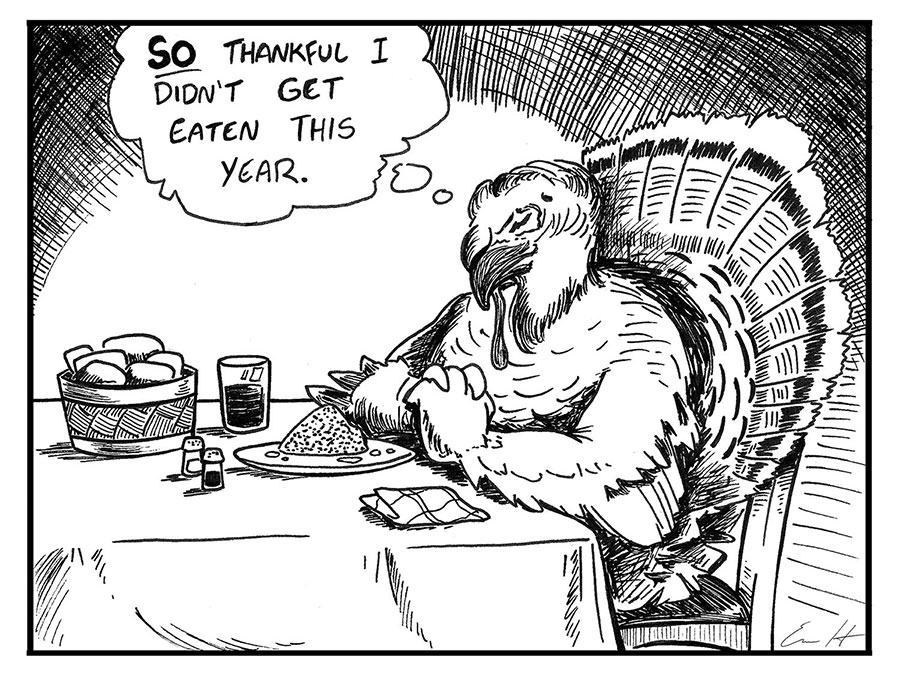By Alma Sosa/reporter
People traveling to foreign countries often bring back souvenirs, but two biologists told NE students they bring back Komodo dragon spit, saliva from Mexican Vampire bats and parasites from Tasmanian devils.
Terry Fredeking and Mike Foster of Antibody Systems, a local producer of diagnostic and therapeutic biological materials for research and manufacturing applications, presented Introduction to Expeditionary Biology Oct. 30.
“Camera crews always are around on our trips,” Fredeking said. “They call me up and ask, ‘Terry, where are you going and can we come?’ I say, ‘Sure we could use more bait.’”
Because of his expeditions, Fredeking has been a guest on the Discovery Channel and the subject of articles in The Wall Street Journal and the Fort Worth Star-Telegram.
Showing pictures from expeditions both took, Fredeking provided insight into an expeditionary trip to Cuernavaca, Mexico, where the Mexican vampire saliva was collected with the assistance of a mist net designed by the Japanese.
The saliva can prevent clotting for 15-20 minutes and also can dissolve clots in certain places, making it easier for doctors to work on those areas, Fredeking said.
The nocturnal Tasmanian devils are found on the Australian island and are the size of medium-sized dogs. Scientists focus on these animals because of parasites that infect them. The parasites have been studied as a possible cloaking device for use in transplants and chemotherapy, Fredeking said.
“It took two years to get a permit to go and another year for the U.S. government to allow us to bring back blood and saliva samples,” he said.
Komodo dragons are found in the Indonesia “ring of fire,” Fredeking said. He and his crew use a grabbing stick to handle the dragons because guns and knives are not allowed. They are allowed to get only 10 dragons to collect samples from, Fredeking said.
These dragons are important because of a bacteria they carry. If untreated, it is fatal, Fredeking said.
“They attack one another, and they don’t get the bacteria,” he said.
Scientists are studying why and how the immune system of these dragons works and how to create a drug to replicate it.
Foster described his global disease research in Nigeria and Mexico focusing solely on dengue fever, similar to the West Nile Virus epidemic here in the United States.
“We did more politicking there than research,” he said.
A chain of command must be followed to do research there, Foster said.
“Just because you have permission to be there doesn’t mean you are allowed to be there,” he said. “You have to get permission from the king, then the priest, churches and finally make a request to advertise.”
The locals were very cooperative, Foster said.
“They see Westerners with medical equipment, and they want it,” he said.
Dressed in their Sunday best, the people would wait for hours in high-degree weather to get treated, Foster said.



























